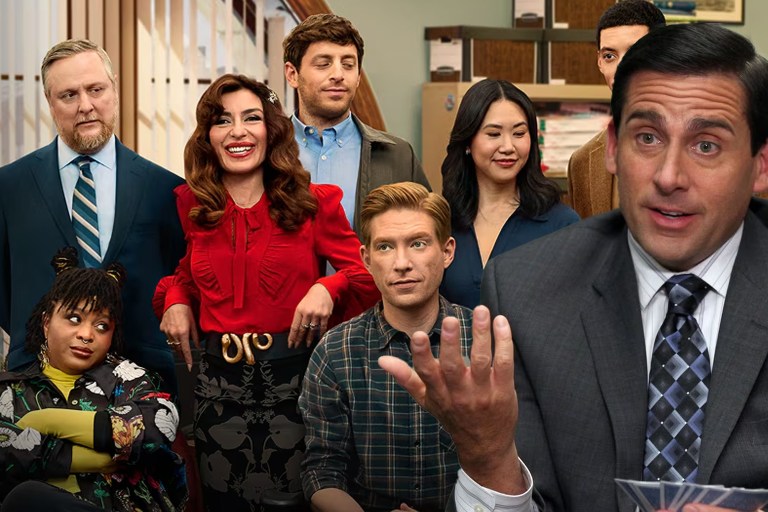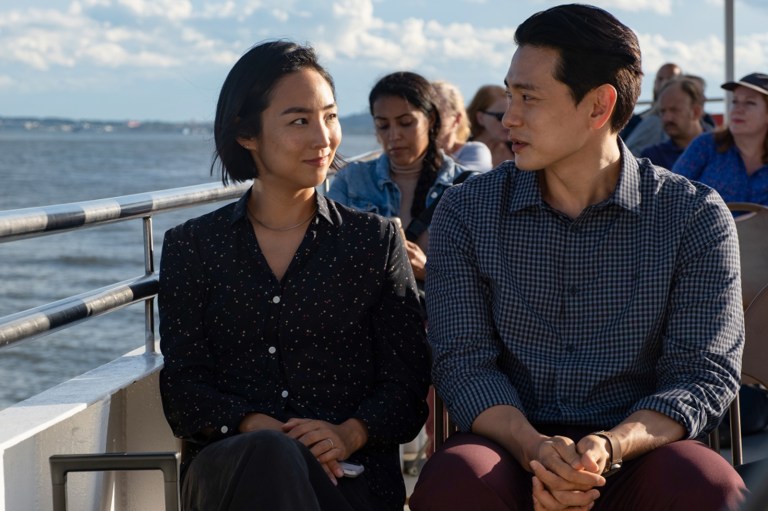
‘And Just Like That’ Carrie Bradshaw Is the Most Worshipped Woman in New York (For No Reason)
And Just Like That… we got more nonsense, more plotlines that go nowhere, and zero self-awareness from characters who were once famous for exactly that.
First, what is this alternate universe where Carrie Bradshaw isn’t just admired — she’s treated like the second coming of literature, fashion, and general human existence?
At the bakery, only Carrie is allowed to order pies. It’s closed to the rest of the mere mortals, but for her? They roll out the pastry carpet. At the book party last week, Duncan’s publicist is practically fawning — she couldn’t believe such an icon came to one of her events! And Duncan — the human embodiment of Oscar the Grouch — turns into a giggling, giddy fanboy, convinced he’s standing in the presence of Jane Austen reincarnated. Why? Because of her riveting pages about… The Woman. (Who is just called “The Woman.” No name. She is a woman who sits and wonders.)
Then there’s her publisher. Now, as a published author myself, let me just tell you: there is no reality in which you submit a manuscript and your editor comes back with zero notes. But apparently Carrie’s prose is just perfection. The only thing they need is an epilogue. No structural changes. No character notes. No nothing. And this unnamed, vaguely pondering protagonist? Apparently she’s carrying the mantle of the next Great American Novel.
Despite all this worship, Carrie always seems to be cranky and still manages to get wildly defensive over everything. Charlotte gently says she was worried about Carrie moving into an empty house, and Carrie bristles: “You were worried? Why were you worried?” As if it’s perfectly normal to drop millions on a hollow echo chamber.
Then comes the Seema scene. Carrie admits she’s apprehensive about going back to her old apartment and wonders aloud, “What if I miss it?” Seema, taking it literally, assumes she means the peeling wallpaper and old floors. But Carrie meant it emotionally. What if I miss the person I used to be? This could’ve been the perfect moment to actually say something about change, nostalgia, identity. But no. Like clockwork, the show sidesteps anything real in favor of a shrug and a scene change. This happens constantly — they tee up an emotional payoff and then never swing.
Meanwhile, the “girl talk” scenes no longer sound like women who’ve been friends for decades. The dialogue is so clunky it could have been pulled from a table read between strangers. Where is the flow? Where is the chemistry? It’s all just so awkward and forced.
The emasculation of the men rolls on: Harry is reduced to penis jokes, literally, that’s it. Every episode. And Lisa’s husband feels like a loser for losing the election and works from home to lick his wounds and feel sorry for himself. No wonder she’s so tempted to cheat on him with her hot, manly editor!
The Gardner and Seema somehow leap from discussing deodorant to declaring “I love you.” There was zero buildup and zero indication that this was two people falling in love, up until now it seemed like more of a F-buddy situation.
This episode was onlhy 26 minutes and we know what that means… they were struggling to fill the time. And what do they do when they need to fill space? We know the drill… musical number!
This week, it’s Rock in a high school play. Because yes, what this nonsensical show really needed was a detour into teen theater.
The big “emotional” climax has Carrie visiting her old apartment — only to find it’s been chopped into two. Who turns a studio apartment into two separate apartments?!
Maybe it was a subtle metaphor for what they’ve done to all these characters: split them down the middle and hollowed them out. And of course, they throw in a recycled nostalgia line (“I guess you can’t go home again”) which she already said in the first movie, as if to distract us from how flat this all is.
Even Lisette teeing up a conversation about being scared to live alone could’ve been something — a chance for Carrie to actually connect. To talk about the hardships of being single women in a big city. To talk about feeling lonely, isolated, and vulnerable. Instead, nothing. Because in this bizarro world, Carrie doesn’t need to be insightful. She’s already the most beloved, celebrated, pie-privileged woman in New York. her brain can exist for mere decorative purposes now and doesn’t need to be powered on.











